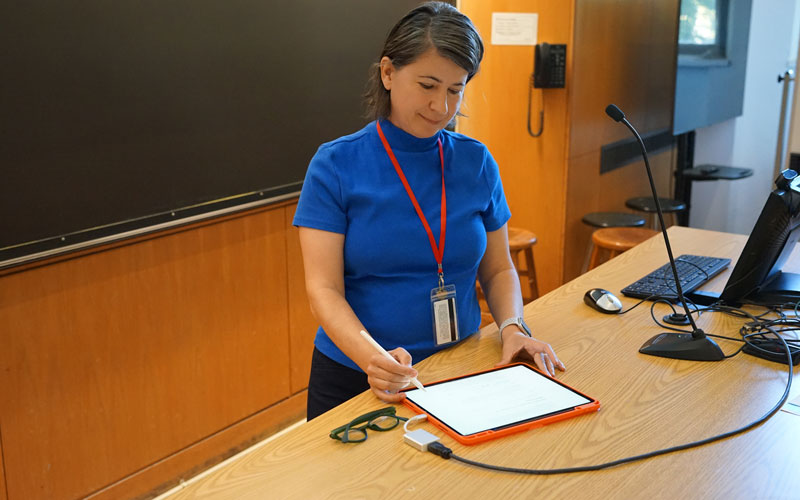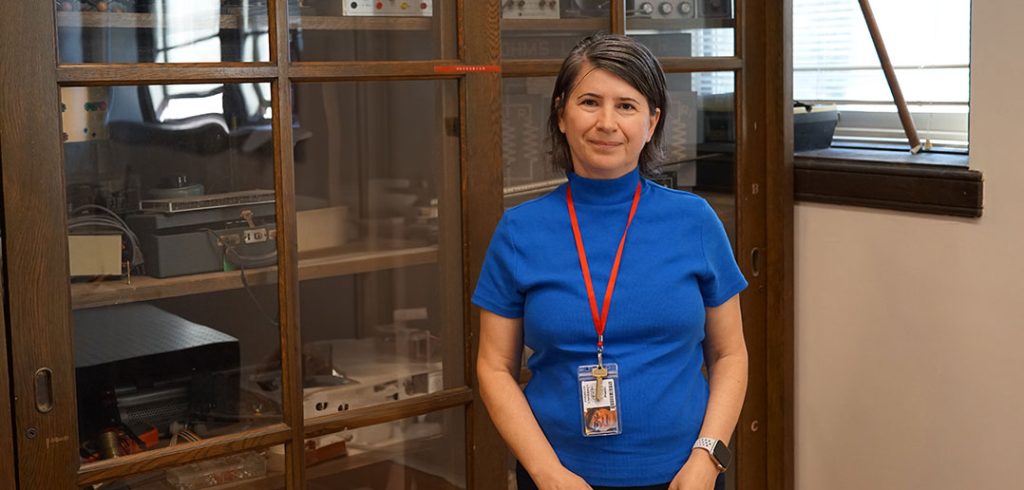Prodan published a paper in PhysRevLett that explored how a microtubule’s structure and its ability to store energy along its edges could be useful in areas like cancer research.
“My hypothesis is that through evolution, cancer-derived microtubules actually found a way to get rid of these energy storage methods,” she said.
One of her goals is to research ways to physically manipulate a cancerous microtubule into one that is noncancerous.
“Then you have another method to treat cancer,” she said.

Connecting Fields
Prodan’s work connects biology with materials science, a field that combines areas like physics and biology to better understand the properties of different materials and how they can be used. This field is useful in areas like engineering, energy conversion, and telecommunications.
“I have two areas that seem disconnected, cancer research and engineering new materials, but they are highly interconnected,” said Prodan, who came to Fordham from the New Jersey Institute of Technology this fall. “The main relationship between them is physics.”
In the course of researching microtubules, Prodan began noticing similarities between them and a new type of material, topological insulators. A topological insulator is a material whose surface behaves as an electrical conductor while its interior behaves as an electrical insulator, she said.
The possibilities of topological insulators became even more clear in 2016, when a team of scientists was awarded the Nobel Prize for its work on topological materials that “could be used in new generations of electronics and superconductors, or in future quantum computers.”
The microtubules’ ability to store energy on the outside of their structure, similar to a topological insulator, makes them a promising subject for future research, Prodan said.
Prodan said that physics has an important role to play in serving humanity, such as by assisting in drug discovery and helping run the communication technology behind programs such as Zoom.
Helping to Enhance STEM Efforts
Prodan said that she was drawn to Fordham because of the University’s expanding STEM offerings, particularly in physics.
That’s why she’s teaching an introductory physics course to undergraduates this summer. The hope is that students get excited about STEM at the beginning of their time at Fordham, before moving on to upper-level courses.
Prodan said that her lab is currently under construction but hopes that it will be ready by the summer or sooner, which would allow her to provide hands-on learning and research opportunities to undergraduate students, as well as local high school students.
“If you want people to have a better life, a healthier life, a happier life, physics and STEM in general are really important,” she said.
“In general, the discoveries that happen in physics don’t have an impact right away. It’s a long-term impact, but they’re essential.

